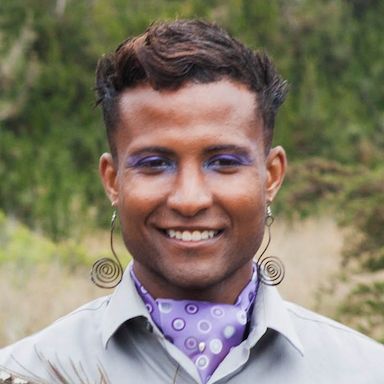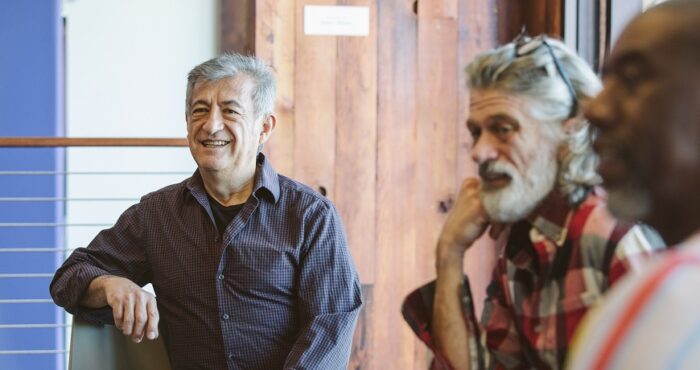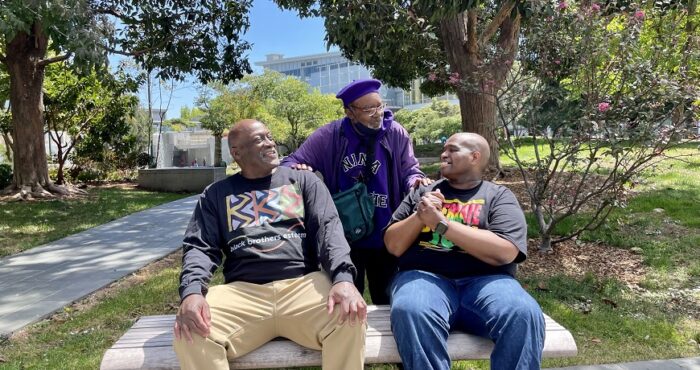Why would I ever want society to return to “normal?”
I was bewildered when I heard the initial health reports marking Black people as experiencing the highest rates of COVID-19-related deaths. It wasn’t a surprise necessarily that Black people are disproportionately affected–I’m aware of how other diseases like HIV disproportionately affect Black communities–but I was stunned by the social dialogues implicitly marking higher rates of death as a Black people’s problem.
Old racist myths about Black inferiority and poor choices by Black people wove their way into the discussion.
Do some people actually believe racial inferiority myths such as Black people are more genetically prone to catching COVID-19? Are there people who still believe myths that Black people are ignorant and therefore incapable of making educated health choices to prevent cardiovascular disease which plays a significant role in COVID-19 deaths? Do some people believe homogenizing myths portraying a cultural structure of Black communities that discourages Black people from practicing physical (social) distancing?
Well, yes, apparently some do.
I have heard the most outrageous questions and comments. I view these questions and comments, at best, as stemming from white supremacist indoctrination. An indoctrination that presents as a patronizing savior response to educate, guide, and “help out” Black people. Sometimes I view these questions and comments as a dangerous blaming technique. A way to excuse wide-scale systematic oppression. A way to insinuate that if only Black people made the easy choice to move out of food deserts and eat the right foods, took time off from work and stayed home, or became “good” citizens and followed the rules then health inequity wouldn’t exist. These perspectives are indoctrinations that have become habit, unquestioned, and normalized. They are, in effect, the unconscious white supremacist paving stones for the road back to normal.
These reborn myths act as scapegoats for people of all races to collectively shirk responsibility for health inequity. Once I realized this subtle racism and scapegoating, my bewilderment quickly turned to a justifiable rage. What I hear in these conversations is the underlying belief, ‘If we label it a Black people’s problem, then we (a Eurocentric society) can simply aim to “return to normal”.
Normal. Normal is a U.S. over-culture where health inequity is a Black problem. Where the need for accessible health care is still up for debate. Where health justice and equitable policies languish without action. I disagree with “returning to normal.”
Let us leave behind “normal” as an option that leads to repeated disasters and public health catastrophes.
Instead, let us finally enact the policies we’ve debated for far too long. Let us go one step further away from “normal” and take actions on the intersectional components surrounding health equity that have yet to be addressed.
This is not solely a Black people’s problem. This is a U.S. collective problem. Yet what is needed are Black-centered priorities. What is needed is a focus on intersectionality. As long as health inequity and high mortality rates remain a Black people’s problem, then real-world policies and active procedures will be slow in coming. Creating health equity requires stepping out of models built on white supremacy.
Assuming that Black communities and Black individuals are unanimous in their challenges, needs, and perspectives is tantamount to thinking that all Black people look alike. Both lines of thought result from a failure to recognize who is present, the differences they embody, and the inherent value in those differences. A failure to step off of the singular rote path.
In recent years, I’ve witnessed health care systems increasingly emphasize accessibility as the path towards health equity. Accessibility can make a difference. However, accessibility does not equate with inclusion, usability, and effectiveness. Accessibility alone will not create health justice. Health justice is more likely to increase when lived Black experiences are included in all procedural phases of a health care movement so that social justice and health equity become interwoven. What adds to this challenge is that there is not just one totalizing Black experience. There are innumerable lived experiences. Furthermore, each lived experience can illuminate a unique intersection where usability and effectiveness can be increased.
I think of my own experiences. I think about all of the unacknowledged health stressors from when life was “normal.” What health stressors do I experience when I, as a Black person, shop at a holistic grocery store that has no visible partnerships with Black people or Black communities? Regardless of how many self-growth workshops I’ve taken or how ‘legitimate’ I know my presence to be, my heart still races and my skin still sweats with anticipation of the microaggressions, security stares, and unwarranted process I receive. My health is literally worn away from accessing healthy food.
What happens when I meet my physician to explain my ailments and they downplay my symptoms? I may have already been dismayed by the statistics of physicians ignoring Black patients’ health concerns but now I leave undiagnosed and untreated. My health concerns degrade from being ignored by a medical provider who lacks pro-Black priorities.
What happens when I participate in a community organizing meeting where I see Black people’s ideas on marketing, programming, and funding get sidestepped? I am so physically exhausted that I stop using the community organization because the effort to redirect Black health concerns back to Black people’s input wears away at my health.
This is what happens when life proceeds as “normal.” I have access. However, I am not truly included in the development and operation of what is available. Furthermore, the actual personal cost for me to access what is available diminishes how usable and effective it could be.
Returning to normal means returning to a network of systems that are killing People of Color. I have every right to be outraged. I have every right to demand something better. I have every right to be part of creating something that resembles health justice. Every Person of Color does.
The systems of this country are flailing. The economic system, justice system, education system, health system, and on and on. They are disintegrating. So now is the best time to birth new systems. This is the moment to serve the final blow to systems that are killing People of Color. This is the ideal time to experiment with the policies and procedures of health justice that before now could not find room to grow. No, not homogenized approaches to the multifaceted needs and desires of Black people. Instead, make room for the Black-prioritized actualizers who have been planning for this moment. Let’s invest our time, our energy, our resources, and our support to the development of many paths that prioritize progressive change over returning to normal.










